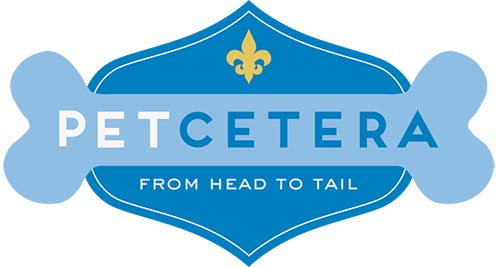During the special seasons, plants assume an unmistakable job in bubbly enhancements.
Notwithstanding, there are a few kinds of enhancing plants that are dangerous to canines and felines. Now and again, just gentle acid reflux and distress will result; in different cases, the poisonous quality can prompt progressively extreme medical issues, and even fatalities.
On the off chance that you are wanting to bring occasion foliage into your home this season, you should realize which plants are protected, which ought to be kept out of your pet's scope, and which ought to be maintained a strategic distance from completely.
Poinsettia Plants
Many individuals have been persuaded that the poinsettia plant is savage for pets and youngsters, however this is really a far-fetched event.
The poinsettia plant's splendidly hued leaves contain a sap that is aggravating to the tissues of the mouth and throat. On the off chance that the leaves are ingested, they will regularly cause sickness and heaving, yet it would take a lot of the plant's material to cause harming, and most creatures and kids won't eat such an enormous enough sum as a result of the disturbing taste and feel from the sap.
Be that as it may, if the plant has been treated with a pesticide, your pet could be in danger of getting sick from ingesting the pesticide. The size of your pet and the measure of ingested plant material will be the deciding elements for the seriousness of the harming. Youthful creatures—little dogs and cats—are at the most noteworthy hazard.
Serious responses to the plant or to the pesticide it has been treated with incorporate seizures, extreme lethargies, and at times, demise.
That being stated, it is still best to keep poinsettias far from pets.
Holly and Mistletoe
Holly and mistletoe are additionally mainstream occasion plants. These plants, alongside their berries, have a more noteworthy poisonous quality level than the poinsettia.
Side effects of disease structure ingesting these plants incorporate intestinal steamed, for example, heaving and loose bowels, over the top slobbering and stomach torment.
Mistletoe contains various substances that are harmful to the two canines and felines, including toxalbumin and pharatoxin viscumin (lectins, phoratoxins). It's outstanding for causing extreme intestinal annoyed just as an abrupt and serious drop in circulatory strain, breathing issues and even mind flights (appearing as abnormal conduct).
On the off chance that an enormous enough measure of these plants are ingested, seizures and demise may pursue.
The leaves and berries of holly and mistletoe plants, even the dried plants, ought to be kept well out of your pet's scope, or even better, kept out of the home by and large.
Lilies and Daffodils
Both prominent blessing things during this season, the lily and daffodil can be dangerous to pets.
In felines, Lilium and Hemerocallis genera lilies are the most risky. Eating even a modest quantity of the plant will severy affect a feline's framework, causing extreme side effects, for example, gastrointestinal issues, arrhythmia and spasms.
Daffodils are likewise poisonous to the two mutts and felines. The bulbs are the most poisonous; be that as it may, even a couple of chomps of the blossom can cause kidney disappointment and even passing in felines.
Any lilies and daffodils you purchase or get as blessings may be better utilized for brightening your work area at work to keep your pet safe (except if there are pets in the workplace).
Amaryllis (Belladonna)
The excellence of the blooming Amaryllis is just coordinated by its poisonous quality. The Amaryllis contains lycorine and different toxic substances, which cause salivation, gastrointestinal variations from the norm (heaving, looseness of the bowels, diminished craving and stomach torment), laziness and tremors in the two felines and mutts.
The bulb of the plant is rumored to be much more hazardous than the blossoms and stalk.
The Amaryllis additionally passes by different names, including Belladonna, Saint Joseph Lily, Cape Belladonna and Naked Lady.
Amaryllis, by any name, ought to be kept out of the house.
Christmas Cactus
Luckily, the Christmas Cactus (or its family member, the Easter Cactus) plant isn't dangerous to hounds in either its parts or blooms. The equivalent applies for felines. In any case, stringy plant material can make disturbance the stomach and digestive system, prompting heaving or loose bowels.
Inquisitive felines and canines, particularly cats and doggies, might be harmed by the spines, so these plants should in any case be kept out of pets' span.
The Christmas Tree
There are different threats to consider with the Christmas tree that go past lights and trimmings.
The oils created by fir trees can be aggravating to a pet's mouth and stomach, causing extreme retching or slobbering. The tree needles, in the mean time, may cause gastrointestinal disturbance, hindrance and punctures.
Also, the water used to support Christmas trees can be poisonous. Microorganisms, molds and composts can make your pet become incredibly debilitated with just a couple of laps of water. Keep the water secured and closed off to keep pets from getting to it.
Inquisitive felines may climb the tree as well as thump the tree over, harming themselves and harming treasure adornments. Best practice is to keep your Christmas tree shut off and far from your felines.
Taking no chances
In the event that you do decide to bring any of these plants into your house, be extremely cautious about where you are putting them. Felines particularly should be considered, since they can hop to high retires.
In the event that your feline is a known plant chewer, you will most likely be in an ideal situation picking fake plants over the genuine articles.
Be that as it may, if your pooch or feline manages to ingest any piece of these occasion plants, call your veterinarian or toxic substance control promptly to discover what you ought to do to limit the harm.
The telephone number for the ASPCA Poison Control is 1-888-426-4435, 24 hours every day.
The Christmas season brings potential risks for our pets, yet with a little exertion, you can guard them.

